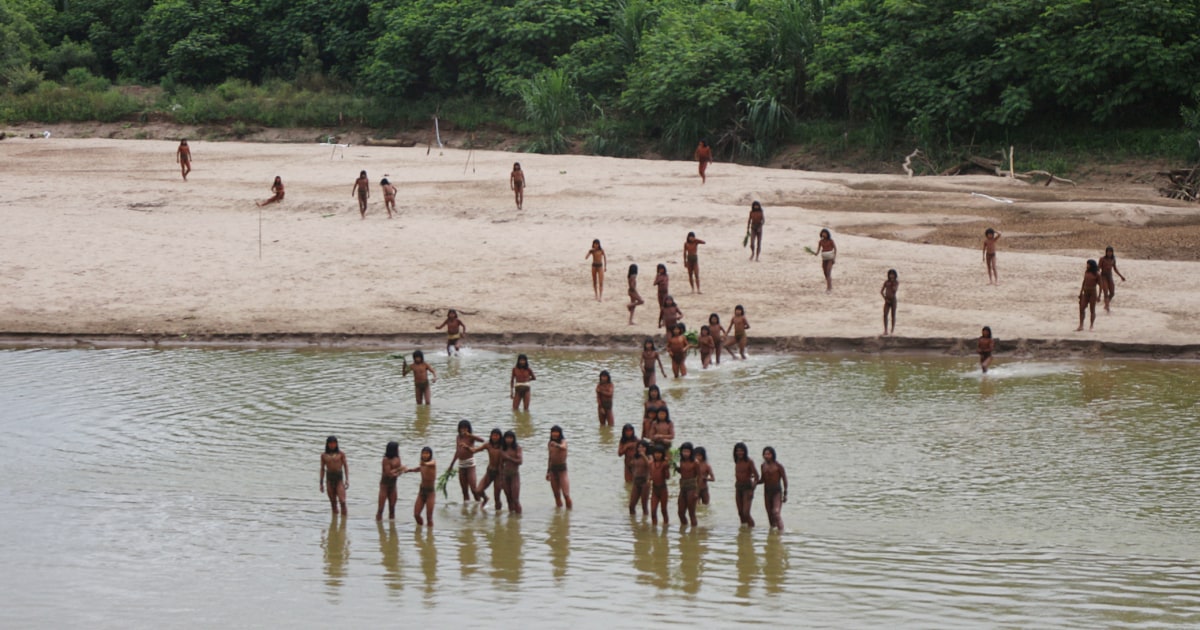
In the remote Peruvian Amazon, more than 50 members of the Mashco Piro tribe, one of the largest uncontacted Indigenous communities in the world, have been spotted near logging areas. The tribe's emergence from their rainforest habitat has raised concerns among indigenous rights groups and local organizations due to ongoing logging activities in their territory.
The Mashco Piro, believed to be over 750 people strong, have previously attempted to make contact with the outside world but retreated back into the rainforest. However, recent sightings suggest that they are becoming more frequent in their interactions with outsiders due to encroachment on their land by logging companies.
Logging concessions granted by the Peruvian government have been a source of contention for indigenous groups and human rights organizations. One such company, Canales Tahuamanu or Catahua, has built over 120 miles of roads for its logging trucks to extract timber from the area. The company holds over 130,000 acres of certified forest under the Forest Stewardship Council (FSC), a non-profit organization that certifies responsibly managed forests.
Despite acknowledging that Catahua was operating within Mashco Piro territory eight years ago, the Peruvian government has not taken action to protect their land. Indigenous organizations, including Fenamad and Survival International, have called for the FSC to cancel its certification of Catahua's operations due to concerns over human rights violations and potential conflict with the Mashco Piro.
The Peruvian government has previously estimated the number of Mashco Piro to be about 750. However, as many as 20 tribes are living in voluntary isolation in Peru, and their right to isolation is enshrined in the constitution. The loss of their territory due to logging activities poses a significant threat to these communities and their way of life.
The Mashco Piro's emergence from the rainforest serves as a reminder of the importance of protecting indigenous lands and respecting their rights. Indigenous organizations continue to advocate for authorities to extend the Mashco Piro's reserve, but logging activities have not ceased, and tensions between loggers and the Indigenous community remain high.


